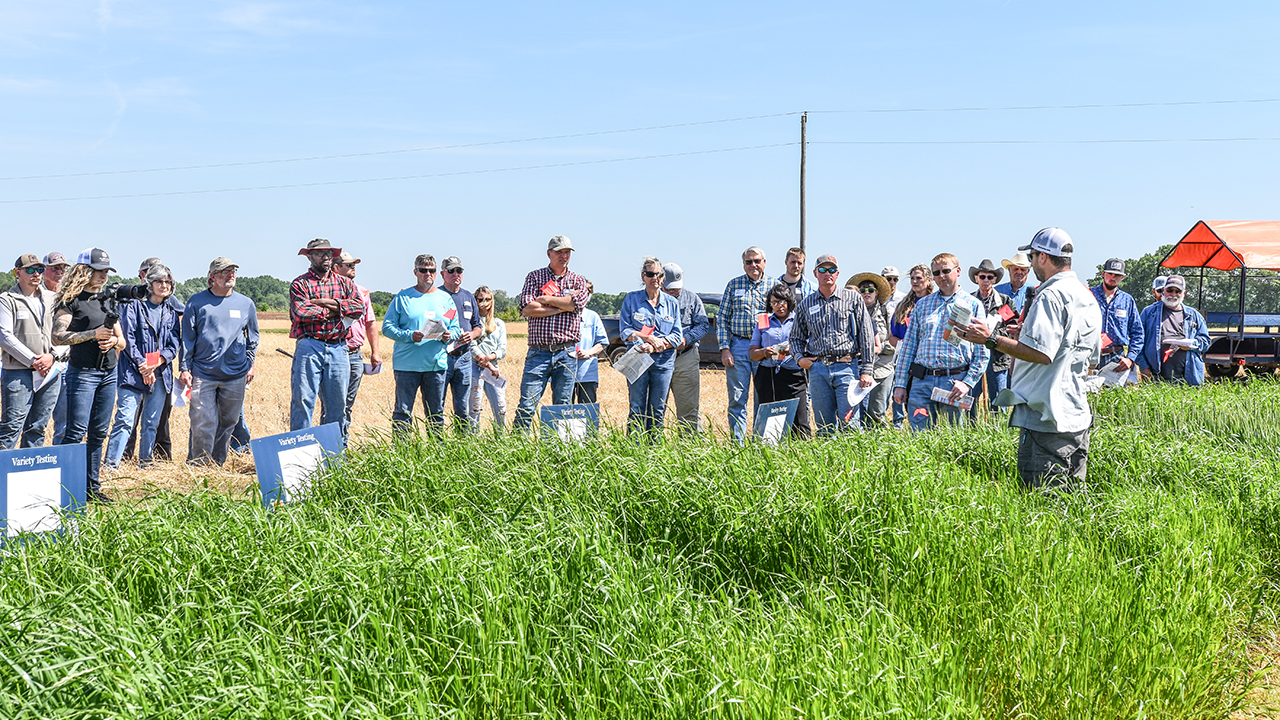Auburn University
Variety Testing Program

Variety selection is the most important decision a farmer can make. If farmers want to be successful, they must ensure that they plant varieties that are well adapted. If a farmer selects the wrong variety, the results can be catastrophic. Typically, farmers do not have the resources to conduct variety trials in addition to their normal growing season activities.
Variety evaluation is also critical to plant breeders, both from universities and industry. Prior to releasing a new variety, these breeders typically evaluate their lines in independent variety trials. This ensures that they have unbiased data from multiple years and locations to support the release of their new variety.
The mission of the Auburn University Variety Testing Program is to provide research-based, unbiased results on the performance of various crop hybrids, cultivars, and varieties to the agricultural community in Alabama. We are intent on conducting these trials in a manner that will result in maximum biological yield through methods common to the top-producing farms in Alabama.
We are committed to providing this information in a timely manner for its use during the decision-making process. The success of the program rests on our ability to help Alabama producers provide a safe, dependable source of food and fiber for all families as well as an economic sustainability for theirs.

Henry Jordan
Variety Testing Manager, Research Associate IV
Subscribe to AU Variety Testing Updates
Annually, the Auburn University Variety Testing Program conducts trials on corn, cotton, soybeans, peanuts, grain sorghum, wheat, barley, oats, triticale, small grain forages, and ryegrass.
Trials are conducted on Auburn University owned and operated agricultural research stations across the major geographical regions of the state. The research conducted at each of these locations can provide stakeholders with data that can be more representative of their growing conditions.
VARIETY CATEGORIES
2023 On-Farm Soybean Variety Trials
February 3 - Yield results are available for the Geneva County on-farm soybean trial. October 31 - Yield results are available for the Lawrence County on-farm soybean trial. October 25 - Yield results are available for the on-farm soybean trial conducted in Macon...
2023 On-Farm Corn
October 20 - Yields for the Baldwin County on-farm trial have been updated. October 14 - Yield results are available for the on-farm corn trial conducted in Cullman County. October 13 - Yield results are available for the on-farm corn trial conducted at the EV Smith...
2023 Corn Summary Tables
October 13 - Statewide summary tables are complete. September 14 - The summary table for the Central Region is now available below. September 1 - Since yield results from both South Region OVT locations are complete, the first summary table of the season is available...
Performance of Corn Hybrids in Alabama, 2023
October 13 Yield results are available for the non-irrigated corn OVT conducted at the Sand Mountain Research and Extension Center (SMREC) in Crossville. Excessive corn earworm pressure was noted. Yields were low, and data was variable. Yields have been excluded...
2022-2023 Winter Forage Summary Tables
September 14 Quality data from Clanton and EV Smith, both located in the Central Region, have been added to the variety selection platform. As a result, the Central Region summary tabs have been updated. Note: Forage quality at Clanton was reduced for the first...
Performance of Small Grain Forage Varieties in Alabama, 2022-2023
September 14 - Quality results are now available on the variety selection platform for the ryegrass trials at the Clanton Research and Extension Center (CREC) and the EV Smith Research Center (EVSRC). Forage quality at the CREC was reduced for the first harvest of...
